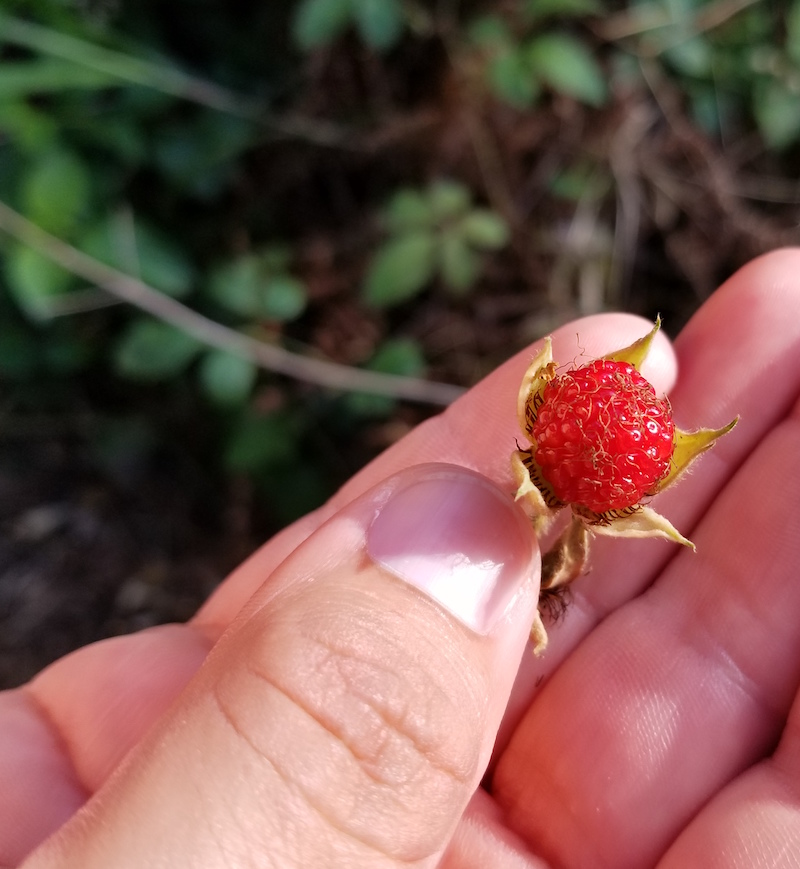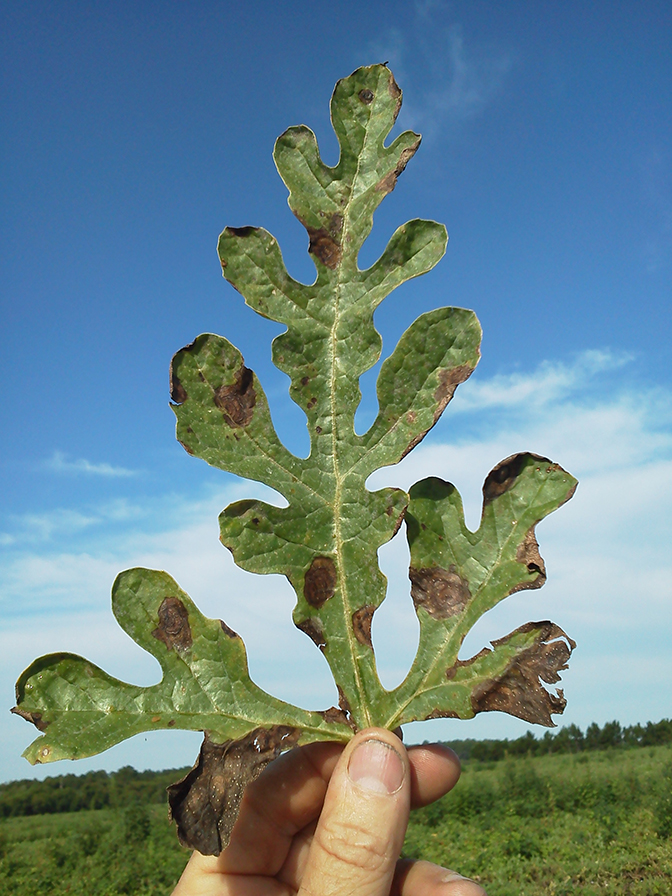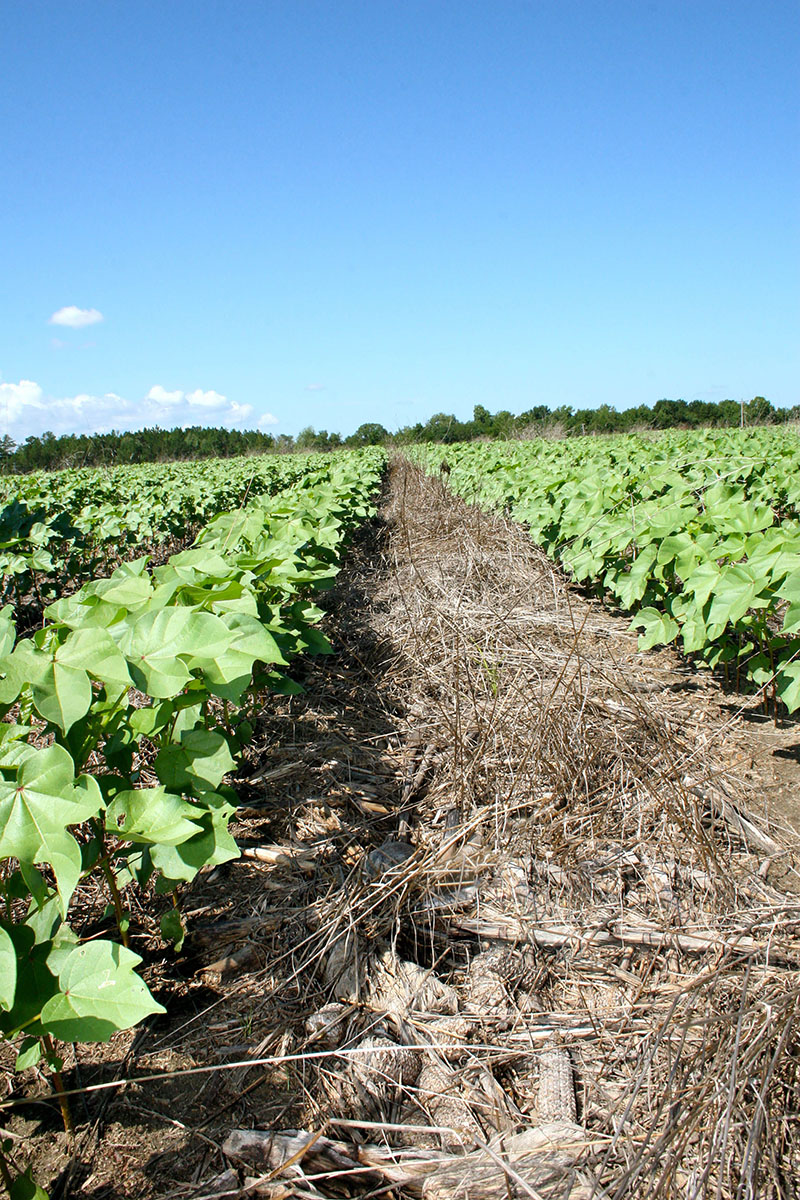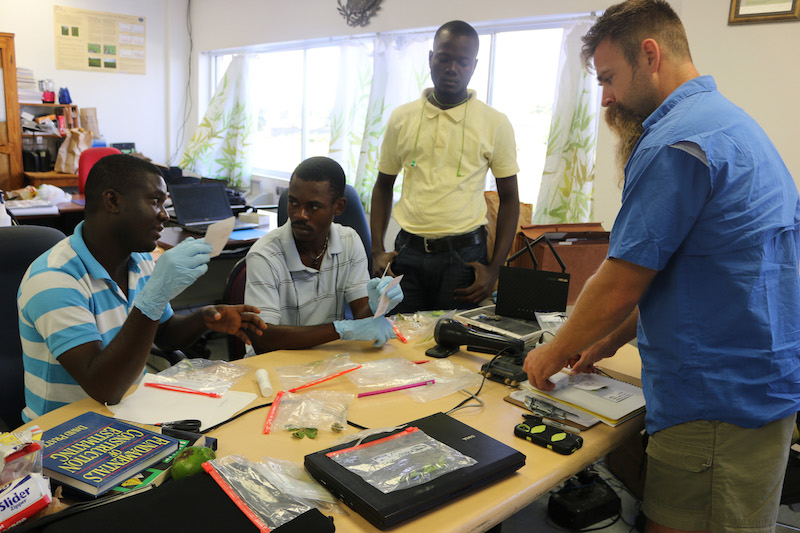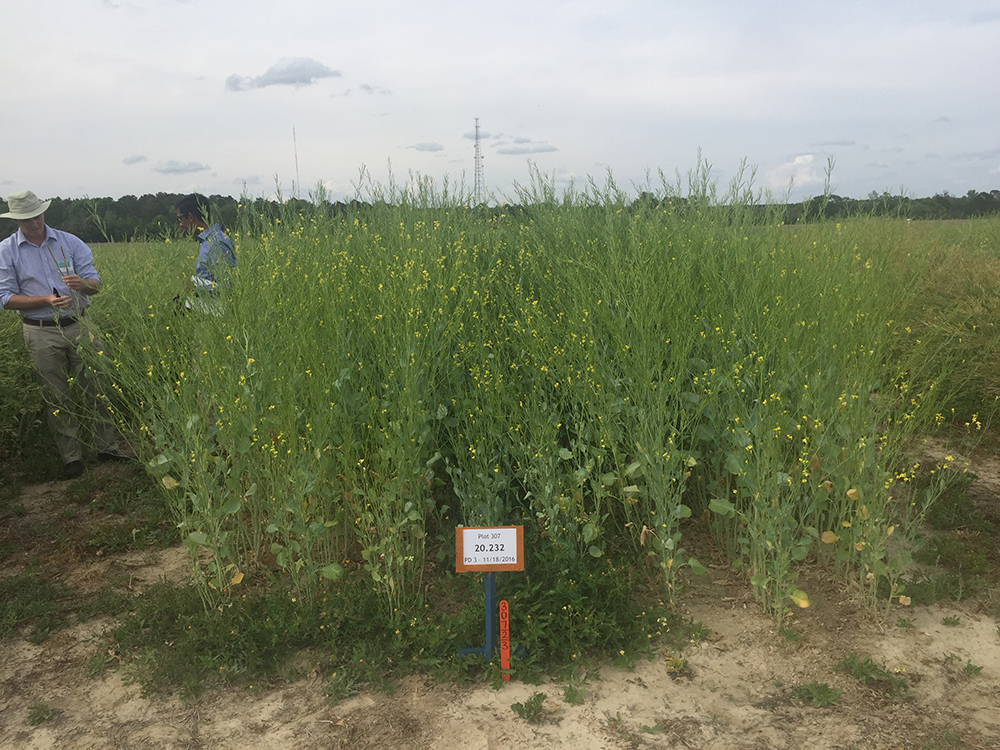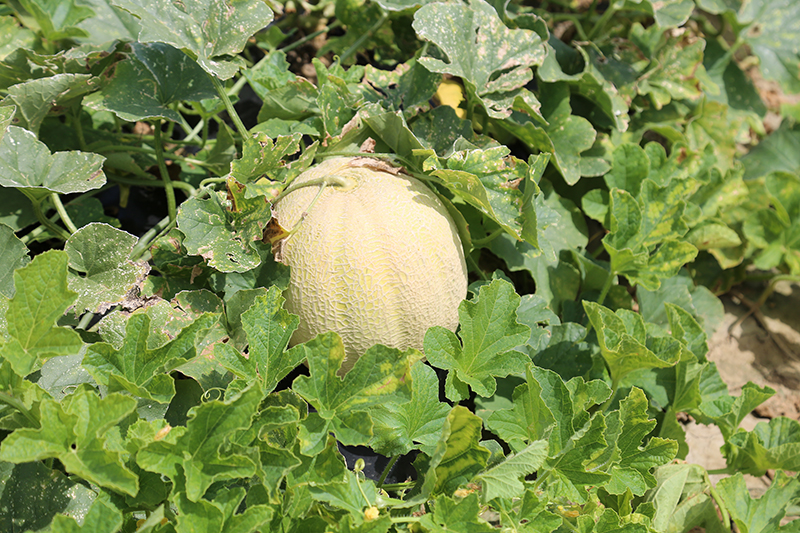 CAES News
CAES News
Cantaloupes
University of Georgia scientists are assisting in a study to find a cantaloupe variety with less netting on the rind in the hopes that the fruit will be less susceptible to the bacteria or pathogens that settle in the netting on the outside of the fruit.

